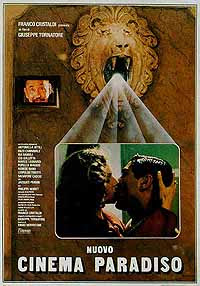

When two friends/colleagues scribble daily thoughts about nothing and everything...


"A team of AUH surgeons has successfully carried out the first artificial heart implant operation in Lebanon, saving the life of a 37 year-old man and father of four".
That is the claim of many renowned media sources in Lebanon. Click here to read the official AUB article by Maha al-Azar.
I'm currently, and incidentally, on the Cardiothoracic surgery rotation at AUH. Yey me. I was surprised by a phone call on Thursday night and a friend screaming at me for not telling them that the first "Heart Transplant" in Lebanon was performed at AUH. Shocked, I thought to myself, there's no way I didn't hear about that one!! Then came another call, another newspaper article, another overheard conversation... All with one, or two, or three things in common... The misconceptions, the misconceptions, and the misconceptions. I just thought there were too many scientific blunders on the part of the media and their reports have been massively misleading at best. The following is a roundup of the misconceptions I thought people should be aware of...
 Misconception 2 - This is NOT and Artificial Heart Implant...
Misconception 2 - This is NOT and Artificial Heart Implant... In contrast, an "Artificial Heart" is... well... an artificial heart! It is a complete heart-like pump that replaces the biologic heart, which is taken out of the patient on the OR table. It is still an experimental technology with only limited success in the United States.
In contrast, an "Artificial Heart" is... well... an artificial heart! It is a complete heart-like pump that replaces the biologic heart, which is taken out of the patient on the OR table. It is still an experimental technology with only limited success in the United States.
Misconception 3 - This is NOT a life-saving device...
The AUB article also states that the operation saved the life of the 37 year-old patient. I am sad to point out that this is not the case. An LVAD implantation is what we call a "bridge to recovery" or "bridge to transplantation" procedure. This device is designed to help keep cardiac performance at an acceptable level for a limited amount of time pending one of two events:
- The recovery of a mildly diseased heart as a result of decreased workload afforded by the LVAD: Bridge to Recovery.
Or:
- The availability of a matching donor heart for transplantation: Bridge to Transplantation.
The LVAD used in this case was the Heartmate II by the Thoratec corporation and is claimed by Thoratec themselves to be able to provide circulatory support for only up to ten years. Now keeping in mind that these ten years are the result of the most optimistic and optimized calculations, it is clear that we should be expecting 5 to 10 years, more realistically, before there is a need for a new intervention. And we would still be optimistic in that we are neglecting all the possible complications that the poor guy could face.
I am not trying to rain on anyone's parade, and least of all the patient himself or the thousands of others with heart problems. I just think it's a shame how the media are having a field day with his story and modeling it, be it willingly or unknowingly out of lack of scientific knowledge, to fit the textbook picture of a world-class achievement in medicine, or that of the wonderful doctor or hospital saving lives by the millions. That this life has been saved is simply not true, and while I am truly ecstatic that this operation took place where I work, and even more ecstatic to see its success and the time it gave our 37 year-old father of four, I cannot emphasize enough how much of a temporary solution this is for our patient, who is, at the end of the day, whom we should think about before anyone or anything else. I can only hope he and his family know what the future holds for them.
This is a milestone in the practice of Cardiothoracic surgery in Lebanon, one that I am proud to witness during my young career. I just can't stand it being taken out of context in this manner. The authors of these articles and their sources shoud be reviewed.